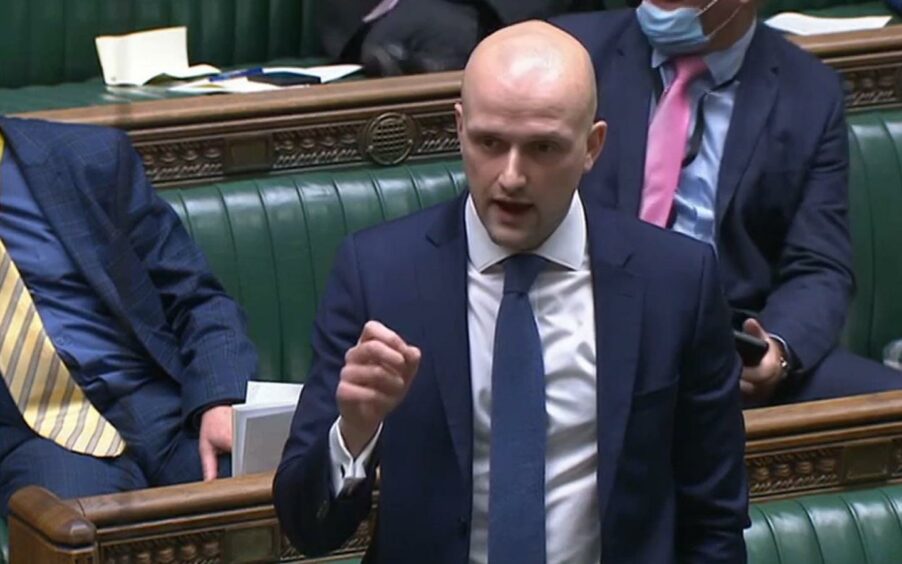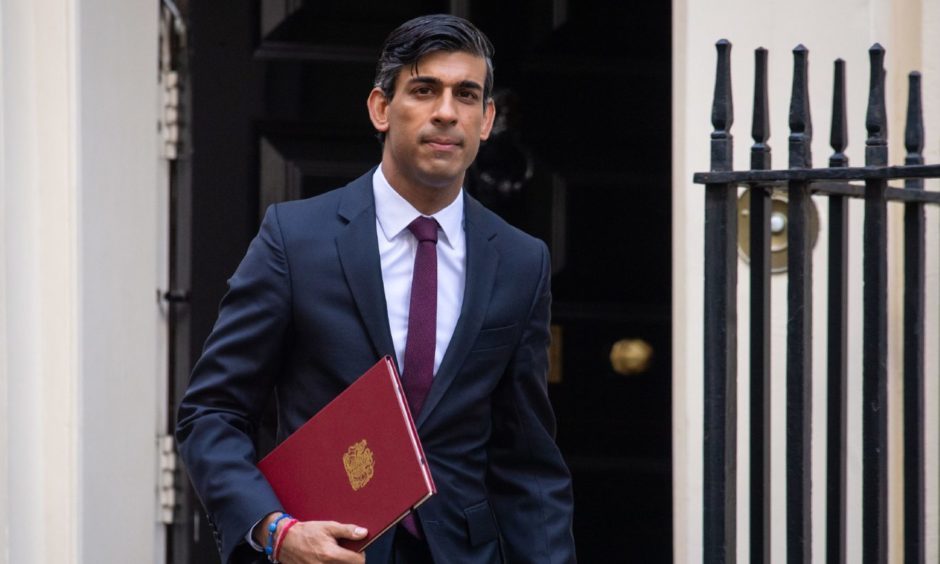
Rishi Sunak has a “moral duty” to use soaring tax revenues from North Sea oil and gas firms to boost Scotland’s energy sector, an Aberdeen MP claims.
The SNP’s Stephen Flynn wants the Tories to use the £1.7 billion they have brought in since the start of the year to match the Scottish Government’s “just transition fund” to help ease reliance on fossil fuels
Nicola Sturgeon’s government previously confirmed they will allocate £500 million to help the north-east move away from fossil fuels to renewables.
In Westminster, Labour have repeatedly urged the Conservatives to hit major multinational energy companies with a one-off tax to help tackle the cost of living crisis.
Chancellor Mr Sunak had long opposed the levy, but has now threatened firms with a windfall levy if they do not support increased investment.
In Holyrood, Nicola Sturgeon indicated she would support the proposal, but she would also like to see other non-domestic firms in different sectors targeted as well.
New research from the Aberdeen and Grampian Chamber of Commerce (AGCC) found that the treasury is currently receiving £19 million per day from major companies as revenues continue to rise.
It’s estimated £1.5 billion more has been paid in tax so far in 2022 compared to the same period in 2021.
Tax revenues from the sector could even soar to as high as £10 billion by the end of the year.
Oil and gas firms have been benefiting from record profits recently while households struggle to pay their bills.
Mr Flynn claimed the chancellor could “replicate” the SNP’s just transition fund “three times over” if he wanted to.
He said: “We knew the UK Treasury was set to rake it in from Scotland’s natural resources.
“Now the figures are clear, they have a moral duty to finance a sustainable future for Scotland’s energy sector and provide targeted financial support to struggling households.
“These tax receipts are huge, so much so that the chancellor could not only match the just transition fund, but replicate it three times over.
‘Money pile’
“But perhaps most importantly of all at this moment in time, it gives the chancellor the flexibility to invest in hitting net zero, whilst also putting cash into the pockets of those families who are bearing the brunt of the cost of living crisis.
“People in Aberdeen, and across Scotland, simply can’t afford for this Tory Chancellor to sit atop this money pile whilst they have to choose between heating and eating.”
Business leaders have continued to argue against a windfall tax being imposed after Mr Sunak’s threat.
‘Tax on business’
Boris Johnson previously branded the idea as a “tax on business”.
Scottish secretary of state Alister Jack claimed it would be the “wrong thing to do”.
Ryan Crighton, policy director at AGCC, added: “We have said repeatedly that the windfall tax on North Sea profits is a blunt instrument that will achieve little apart from making the North Sea less attractive to investors.
“That would place jobs, tax revenues and our domestic energy security at risk, and also limit the ability and appetite in investing in low carbon research and development we so desperately need.
“Perversely, this would likely drive-up energy bills and be entirely counter-productive.”
Recommended for you

 © PA
© PA © Supplied by DCT Media
© Supplied by DCT Media